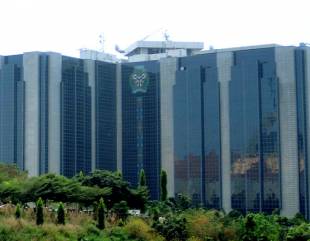The monetary policy committee (MPC), an arm of the apex bank in Nigeria had a meeting on Thursday to set the rate for certain interest rates. From the meeting, the Central Bank of Nigeria reduced the Monetary Policy Rate from 13.50% to 12.50% while other parameters such as the Cash Reserve Ratio remained at 27.5% and Liquidity ratio at 30%. Analyst were caught by surprise as they expected the rate to be constant. The new MPR marks the first rate cut rate since March 2019.
According to the Central Bank Governor, Godwin Emefiele, the decision of the monetary policy committee to reduce the Monetary Policy Rate was as a result of the current pandemic in the economy which caused increased inflationary pressure, restriction in international trade. He continued by highlighting the effects as a decline in the nation’s GDP and a decline in the manufacturing and non-manufacturing purchasing index as a result of unemployment and slow growth in production
ECONOMIC ANALYSIS
When Government want to regulate the money in circulation in an economy, one of the instrument it uses is the Monetary Policy Rate. It is the rate at which banks can borrow money from the banker’s bank which influences the rate at which banks lends to companies and other borrowers as a relationship exists between the monetary policy rate and the lending rate.
The National Bureau of statistics (NBS) announced last month that the inflation rate increased to 12.34%. One of the reasons the monetary policy committee increased is rate is to reduce inflationary pressure. However, this could have its short term and long term effects
When MPR is reduced, companies, investors and individuals will have access to cheaper money as lending rate will reduce. As private borrowing increased, demand and consumption will increase even with the low supply of goods and services in the market causing an increase in price-increased inflation. This is the short run effect
At a point, the borrowed money is channelled towards production and into the economy, there will be growth and with this growth, there will be an increase in production to meet the high existing demand. The market will try to adjust itself to be at equilibrium and with this, inflationary pressure is reduced. Also, as domestic or local companies have access to loans, imported inflation will be reduced. This is the long run effect.
Achieving a reduced inflationary pressure is more of a long run programme and the economy should be ready to take up the short run effect to achieve the long run effect.
In response to the policy made by the
monetary policy committee, Prof Sheriffdeen Tella, a senior economist at Olabisi Onabanjo University, Ago-Iwoye, Ogun that the MPR reduction is too low to impact the economy and should look for a more proactive way to turn the economy around. He said the CBN should rather increase incentives for expansion in the productive sector, he specifically mentioned that investment in the power sector as it can create more employment opportunities and help to grow in the economy. It was also predicted that a reduction of the monetary policy rate to 12.5% will drive funds into the capital market
To conclude, the apex bank governor emphasised the need for government to work towards a gradual reopening in line with the Presidential Task force and advice from medical personnel so as to resume economic activities needed to stimulate growth, accelerate the pace of recovery and restore livelihood, particularly the vulnerable in our society.
24/7 UPDATES ON OUR WHATSAPP TV, JOIN NOW
Follow Us on Facebook – @2709Updates; Instagram – @2709Updates; X – @2709Updates;
Discover more from 2709 Updates
Subscribe to get the latest posts sent to your email.



